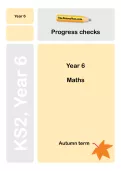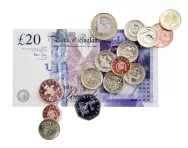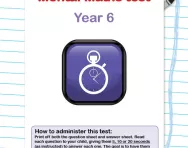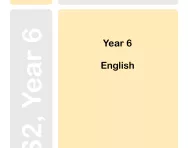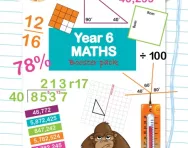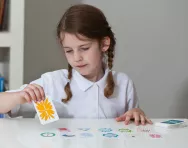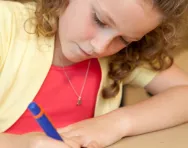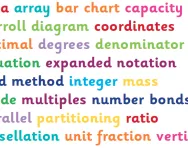Important update from TheSchoolRun
For the past 13 years, TheSchoolRun has been run by a small team of mums working from home, dedicated to providing quality educational resources to primary school parents. Unfortunately, rising supplier costs and falling revenue have made it impossible for us to continue operating, and we’ve had to make the difficult decision to close. The good news: We’ve arranged for another educational provider to take over many of our resources. These will be hosted on a new portal, where the content will be updated and expanded to support your child’s learning.
What this means for subscribers:
- Your subscription is still active, and for now, you can keep using the website as normal — just log in with your usual details to access all our articles and resources*.
- In a few months, all resources will move to the new portal. You’ll continue to have access there until your subscription ends. We’ll send you full details nearer the time.
- As a thank you for your support, we’ll also be sending you 16 primary school eBooks (worth £108.84) to download and keep.
A few changes to be aware of:
- The Learning Journey weekly email has ended, but your child’s plan will still be updated on your dashboard each Monday. Just log in to see the recommended worksheets.
- The 11+ weekly emails have now ended. We sent you all the remaining emails in the series at the end of March — please check your inbox (and spam folder) if you haven’t seen them. You can also follow the full programme here: 11+ Learning Journey.
If you have any questions, please contact us at [email protected]. Thank you for being part of our journey it’s been a privilege to support your family’s learning.
*If you need to reset your password, it will still work as usual. Please check your spam folder if the reset email doesn’t appear in your inbox.
Year 6 maths Progress checks
Want to support your child's maths learning at home? Our Y6 maths Progress Checks, prepared by a KS2 teacher, will help you identify any areas your child is finding tricky so you can revise them together.
Each term’s maths test consists of 20 questions and a total of 20 marks. The first 5 questions are mental maths questions (allow your child 10 seconds for each one) and the next 15 are written questions (allow your child as much time as they like to do these questions).



The Progress checks are designed to follow TheSchoolRun's Learning Journey for that particular term. Please note: they cannot and will not necessarily follow what your child’s teacher is doing at school this week / term, as teachers tend to choose to cover objectives in an order that they feel suits their class. Therefore, don’t worry if your child cannot complete certain questions; the point of the Progress checks is to help parents identify where children might need extra help and practice.
Y6 maths objectives explained
By the end of the school year children should be confident with the following:
Y6 number and place value
- Reading, writing, ordering and comparing numbers to 10,000,000
- Calculating intervals across 0
Y6 calculating
- Multiplying four-digit numbers with two-digit numbers using long multiplication
- Dividing four-digit numbers by two-digit numbers using long division
- Identifying common factors, common multiples and prime numbers
- Solving multi-step problems involving all four operations
Y6 fractions, decimals and percentages
- Simplifying fractions
- Comparing and ordering fractions
- Adding and subtracting fractions with different denominators
- Multiplying pairs of proper fractions, giving the answer in its simplest form
- Dividing proper fractions by whole numbers
- Multiplying and dividing numbers by 10, 100 and 1000
- Multiplying one-digit numbers with up to two decimal places by whole numbers
- Using written division methods in cases where the answer has up to two decimal places
Y6 ratio and proportion
- Finding percentages of amounts
- Solving problems involving shapes and scale factors
Y6 algebra
- Using simple formulae
- Generating and describing linear number sequences
- Expressong missing number problems algebraically
- Finding pairs of numbers that satisfy an equation with two unknowns
Y6 measurement
- Converting between units of measurement, using decimal notation up to three decimal places
- Working out the perimeter and area of shapes (including parallelograms and triangles)
- Working out the volume of cubes and cuboids
Y6 geometry
- Drawing a 2D shape using given dimensions and angles
- Finding unknown angles in any triangle, quadrilateral and regular polygon
- Illustrating and name parts of circles, including radius, diameter and circumference
- Recognising angles where they meet at a point, are on a straight line or are vertically opposite
- Plotting coordinates on all four quadrants
- Drawing and translating simple shapes on the co-ordinate plane and reflect them in the axes
Y6 statistics
- Interpreting and constructing pie charts and line graphs and use these to solve problems
- Calculating and interpreting the mean as an average
Read our parents' guide to what your child learns in Y6 maths to find out more about the skills they'll be practising; for practical applications choose from our Y6 maths worksheets or follow our Learning Journey for Y6 maths. We also offer a step-by-step revision course for KS2 maths SATs.
